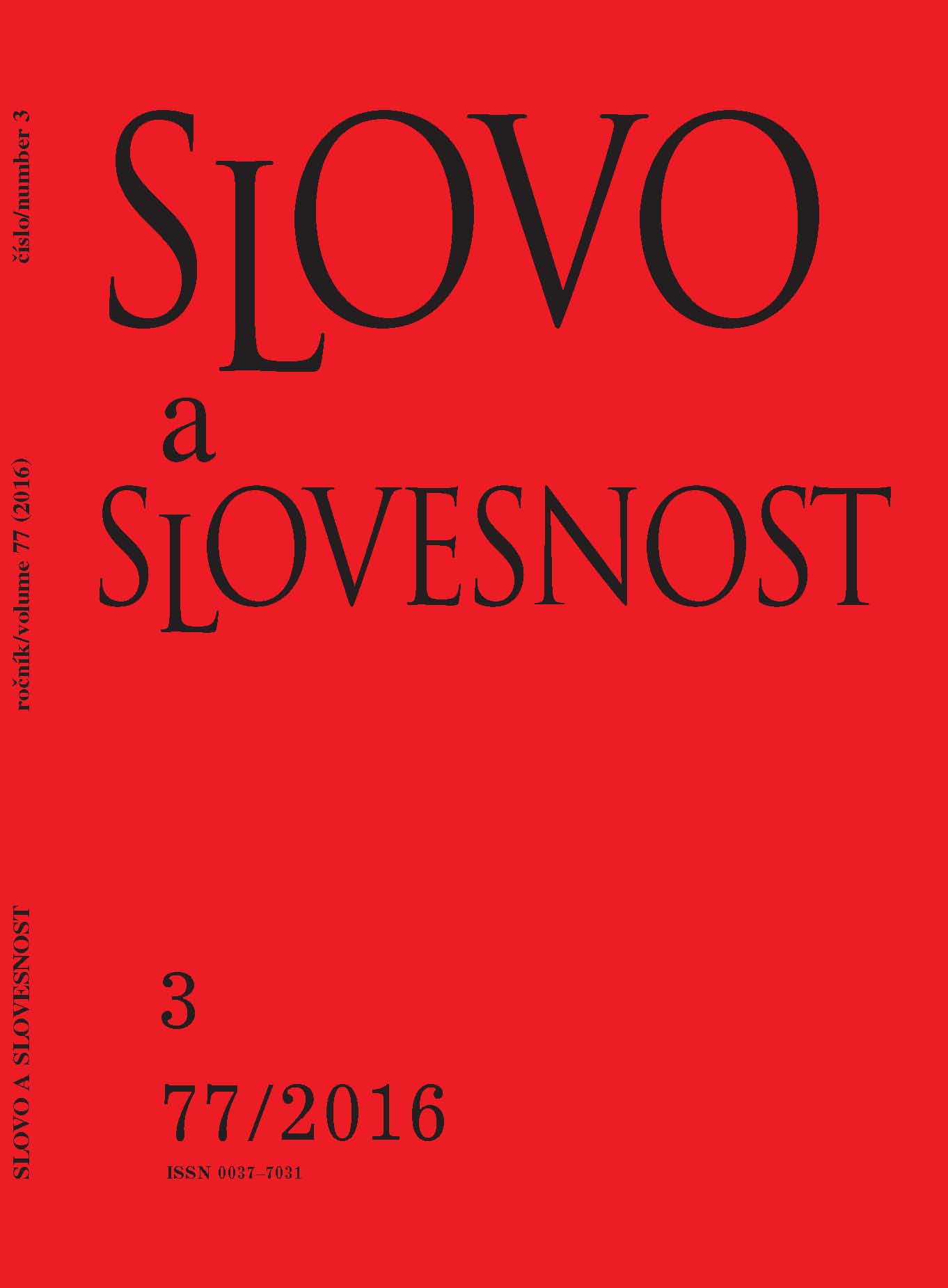Osvojování gramatických kategorií sloves u českého dítěte
The acquisition of verbal grammatical categories in a Czech-speaking child
Author(s): Pavla ChejnováSubject(s): Language acquisition
Published by: AV ČR - Akademie věd České republiky - Ústav pro jazyk český
Keywords: Czech language acquisition; developmental psycholinguistics; child language; verbal grammatical categories
Summary/Abstract: The article presents a description of the acquisition of verbal grammatical categories in a monolingual Czech-speaking boy living in Prague. The author uses diary data for the pre-morphological stage and a corpus of transcriptions of audio recordings from ages 2.8 to 3.6 which covers the stage of protomorphology. In the pre-morphological stage, words are rote-learned and usually occur in one form per lemma. The protomorphological stage manifests itself through the emergence of grammatical oppositions. The occurrence of miniparadigms and the gradual development of grammatical forms are documented. First the child produces only a limited number of forms, and the 3rd person singular present tense functions as a base form. Then the 1st person singular and plural appear. In parallel, the child learns to use tenses – present tense prevails for imperfective verbs, future tense and past participles for perfective verbs. The directive function is expressed by infinitives before the imperative is acquired. The conditional and passives are acquired at the end of the protomorphological phase. The author argues that the main principle of acquisition is the pragmatic principle: a child acquires what he or she needs to express. The frequency of verbal means in input and their complexity also influence the sequence of acquisition.
Journal: Slovo a slovesnost
- Issue Year: 77/2016
- Issue No: 3
- Page Range: 185-201
- Page Count: 17
- Language: Czech

